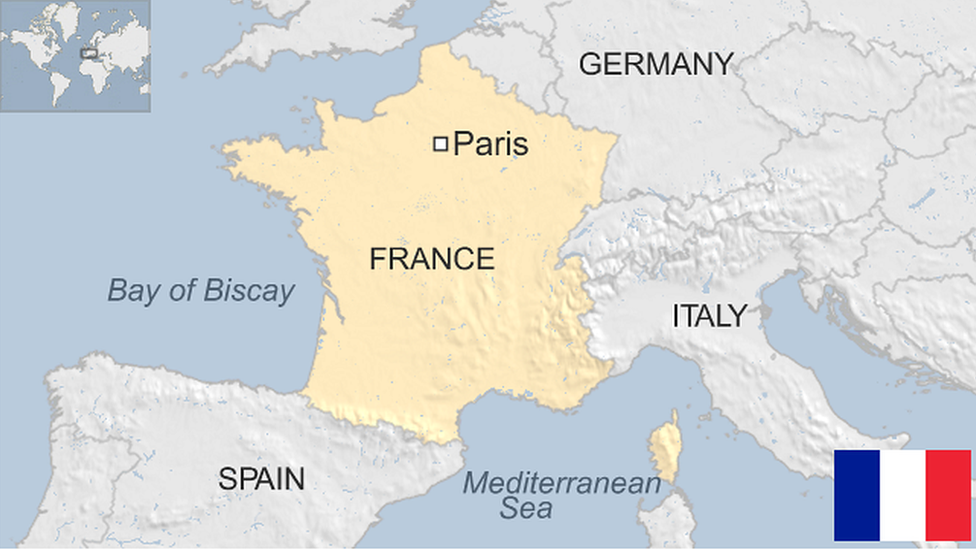France crisis: Can Francois Hollande recover from revolt?
- Published
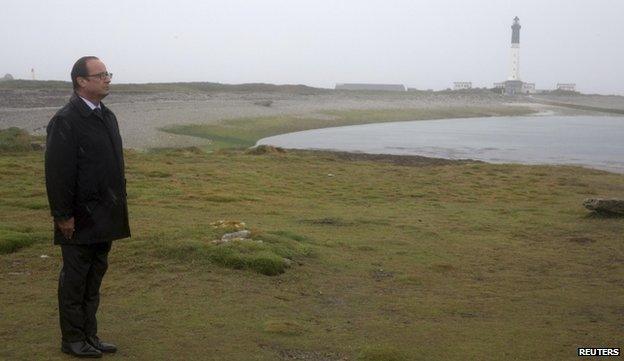
President Hollande attended a rain-sodden ceremony off Brittany coast as his cabinet collapsed on Monday
For once, the front pages of France's newspapers were in agreement. "Regime in Crisis" screamed the headline in the left-wing daily Liberation; the same phrase was splashed across the front page of the right-wing Le Figaro.
From the covers of both papers, a rain-sodden President Hollande stared out into the middle-distance.
Amid slumping growth and historic levels of unpopularity, Mr Hollande has now added another unwanted achievement to his record: presiding over one of the shortest cabinets in the history of France's Fifth Republic.
Arnaud Montebourg, the economy minister at the heart of this latest saga, has long been a critic of the government's austerity policies.
He was promoted in April during the last reshuffle, after the Socialists' disastrous showing in the EU elections earlier this year, along with fellow leftist Benoit Hamon and centrist Prime Minister Manuel Valls.
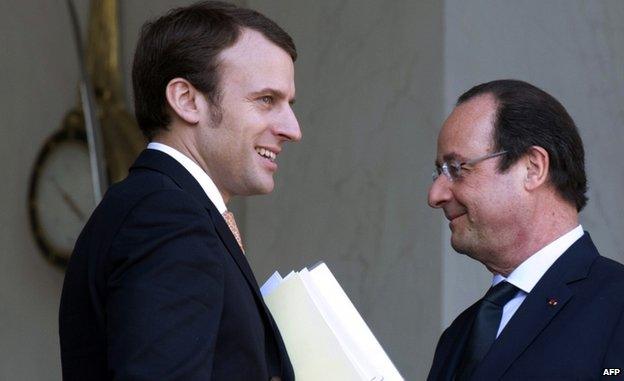
Emmanuel Macron, the new economy minister, is a former banker and economic adviser to the president
The idea was to cement the left and right wings of the party behind Mr Hollande's economic plans. Four months later that deal has fallen apart, and the economy is still stagnant, with unemployment running at more than 10%.
A central aim of his latest reshuffle is to replace those left-wing critics with more sympathetic minds, and give President Hollande's economic drive a boost.
Key among the new appointments announced on Tuesday is a fresh face in government. Emmanuel Macron is a former banker and economic adviser to the president who now takes up the job of economy minister.
His key selling point is that he shares the president's pro-business, centre-right vision - unlike his predecessor.
Two other loyalists have been promoted to the positions of education and culture minister.
Loyalty test
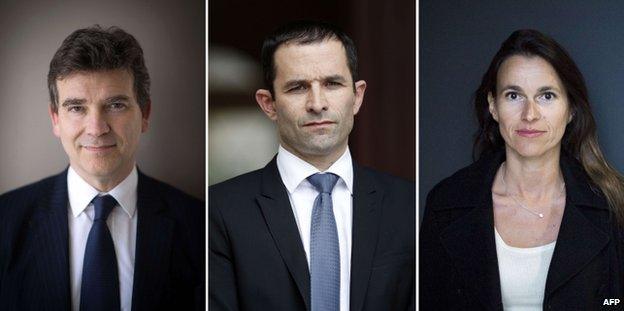
The main casualties of the reshuffle are Arnaud Montebourg (L), Benoit Hamon (C) and Aurelie Filippetti (R)
So with his most vocal critics out of government, will things get easier for Mr Hollande?
The dissolution of the cabinet, with each former minister required to attend an individual loyalty test, has certainly sent a strong message - and the new appointments should make the day-to-day running of the government more cohesive.
But the fault lines in the Socialist party and its allies have not gone away, and there is a danger those divisions will simply switch to the National Assembly.
That could mean Mr Hollande has a much tougher time getting key legislation through later this year.
Quite apart from the political fallout of this purge, some analysts believe this crisis marks a key moment for Mr Hollande's leadership.
Christian Makarian, editor at L'Express current affairs magazine, believes Francois Hollande's behaviour over the past two days marks a "mental revolution" for the politician himself.
"Hollande has built his personal career on navigating between the two main streams of the Socialist Party," he told me.
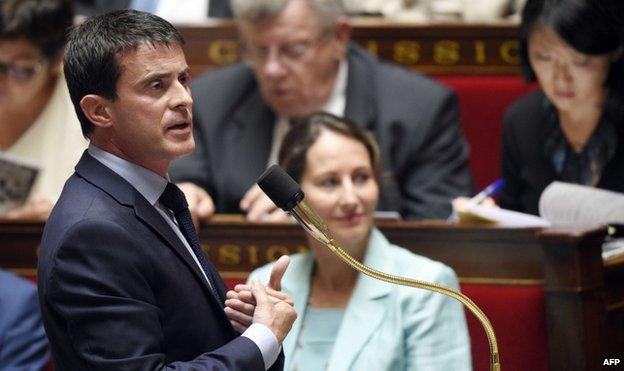
The divisions visible in Mr Valls's first cabinet could now transfer to the National Assembly
"Now, he's not only a navigator; he's the captain, and he must take the risk of being strongly unpopular inside his own political family.
"This is the first time I've seen him with a strong will to enact a kind of cultural revolution, and show that he's able to get rid of some bad habits from the past."
If anyone needs to be comfortable being unpopular, it's President Hollande.
The French leader has had some terrible polls recently: fewer than 20% of voters believe in his ability to turn the economy around.
If growth rebounds, then Mr Hollande could well recover too.
But things could also get worse - confidence in him could ebb further, the in-fighting could continue, and his programme could become stuck in the National Assembly.
For someone new to being captain, it looks like rough seas ahead.
- Published27 August 2014
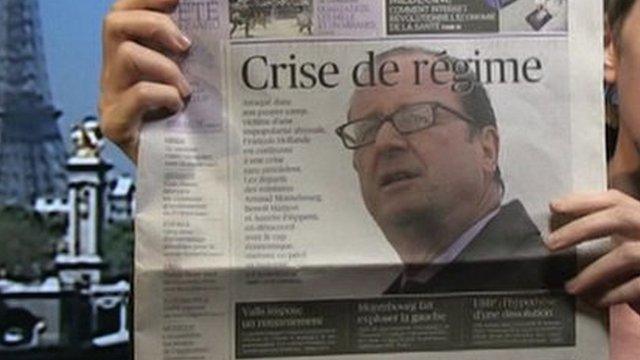
- Published26 August 2014
- Published26 August 2014
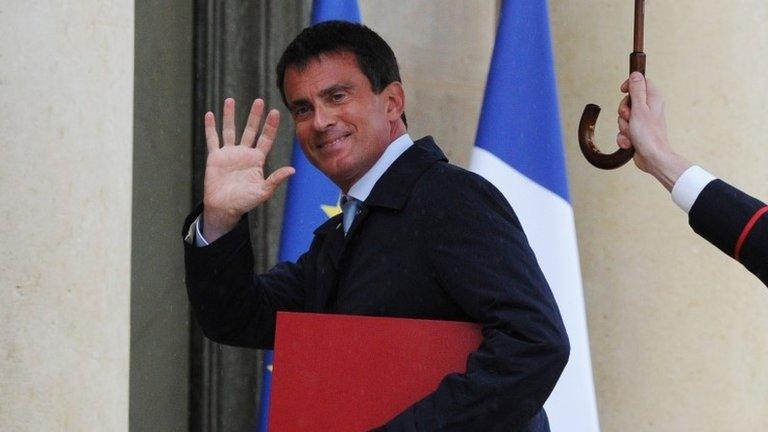
- Published25 August 2014
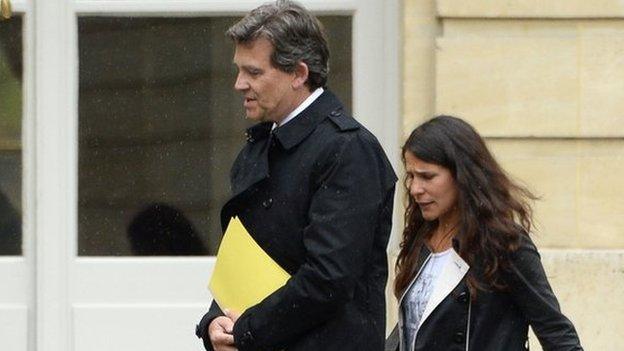
- Published21 August 2014
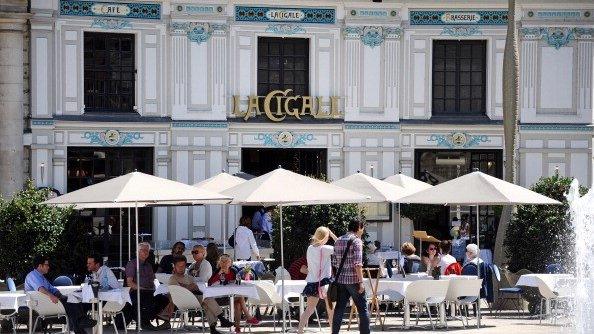
- Published9 January 2024
